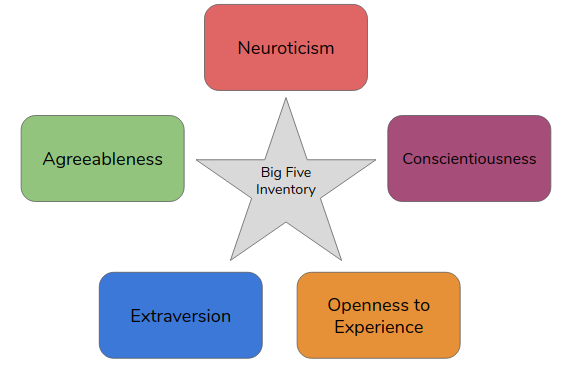A scientific study suggests intelligent people swear more.
Basically, this means that people who swear don’t use swear words due to a lack of other words with which to express themselves, but because they want to use swear words to express themselves.

Researchers at Marist College in New York consider a bigger vocabulary of taboo words and phrases to be a sign of higher rhetorical skill, which is a person’s ability to write and speak effectively. They also suggest that people who are able to name the most swear words in sixty seconds usually have a larger vocabulary overall.
A larger vocabulary is a larger vocabulary, right? It shouldn’t matter if you’re “quoting Shakespeare or cursing like a sailor.”
The findings of the following research experiment dispelled the stereotypes that swearing is equated with low intelligence, limited vocabulary, and lower social status, as well as popular belief that sees swearing as a defect, and that people curse because they run out of intelligent things to say.
The Experiment
An article published in The Huffington Post Canada talks about the experiments done by psychologists Kristin Jay of Marist College and Timothy Jay of Massachusetts College of Liberal Arts. These psychologists conducted an experiment composed of three different parts or tests.
In their first study, researchers, Kristin Jay and Timothy Jay, gathered 43 participants – 30 of whom were women. These participants had to come up with as many “taboo words” and animal names that started with the letters “a,” “f,” and “s” as they could in one minute.
In the second part of the experiment, 49 participants, 34 of which were women, aged 18-22, were asked to write down as many taboo words and animal names starting with the letter “a.”
The Big Five Inventory
Researchers conducted a personality test as the third part of their experiment. They gave participants “the so-called “Big Five Inventory” test,” which is commonly used by psychologists. It measures five personality traits: openness, conscientiousness, extraversion, agreeableness, and neuroticism.

“[C]urse word fluency was connected to traits of neuroticism and openness[.]”
– The Huffington Post Canada
The Big Five personality traits, also known as the five-factor model (FFM), is a type of psychological model based on the common language descriptors of a personality, the lexical hypothesis. This theory suggests “five broad dimensions used by psychologists” to evaluate and “describe the human personality and psyche.” Within each of the five factors, lays a “number of correlated and more specific primary factors.”
The Findings
They ended up with 533 taboo words, some being “lesser-known words such as “ass pirate”.”
The findings of these experiments lead researchers to believe the idea that “fluency is fluency.” Participants that were able to come up with more curse words were usually found to be more eloquent in general. Overall, swearing is not always a sign of a poor, or limited, vocabulary or of someone not having anything better to say.
However, this question remains: what is it a sign of?
The researchers found participants who cursed more showed higher neuroticism, which is a tendency towards anger, anxiety, and depression, and openness to new experiences. They were also less agreeable, meaning they didn’t “value getting along with others” as much, and less conscientious, meaning they tended to have “lower levels of self-discipline.” However, researchers found no connection to “how religious people were,” unlike a few previous studies.
The findings support the idea that “swearing is mostly a vehicle for expressing strong emotion” with people who tend to “care less about who they might offend.” Basically, swearing is an “intense” and “powerful” form of expression, despite people finding it unpleasant.
“A voluminous taboo lexicon may better be considered an indicator of healthy verbal abilities.”
– The Huffington Post
Again, saying that swearing is a sign of a limited vocabulary isn’t necessarily accurate. If someone is truly at a “loss for words,” they usually stutter, or say things like “er” or “um” rather than cursing. Researchers say swearing can be an “indicator of healthy verbal abilities rather than a cover for their deficiencies.”
In 2015, psychologists Kristin Jay and Timothy Jay published their research and results regarding these experiments in Language Sciences, Volume 52.
In Conclusion
Most people will say something about swearing being related to low intelligence and poor vocabulary. However, according to this study conducted researchers Kristin Jay, of Marist College, and Timothy Jay, of Massachusetts College of Liberal Arts, swearing does not have a direct connection to either of its stereotypical associations.
Yes. “Taboo” words can be offensive or unpleasant for some people to hear. Nevertheless, people with a larger mental word bank of curse words could have a larger vocabulary in general. Vocabulary is vocabulary regardless, right?
Yes. These people were also found to have better fluency, and a better grasp of the English language in general.
Surprised? Well?
If you are, the one thing you should know is this:
People who swear CAN use words with more than four letters.
They just so happen to like those four-letter words better.
Featured Image: Clker-Free-Vector-Images // pixabay.com

I found this blog to be super intersting and was something I had never though about before.